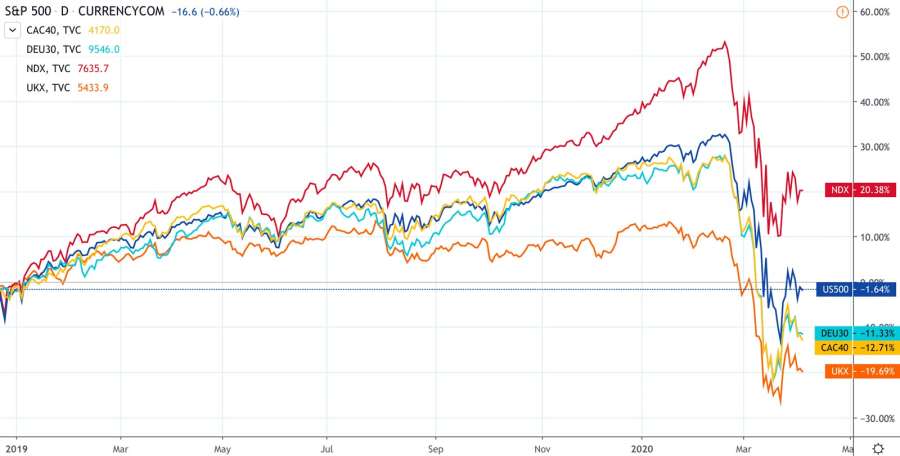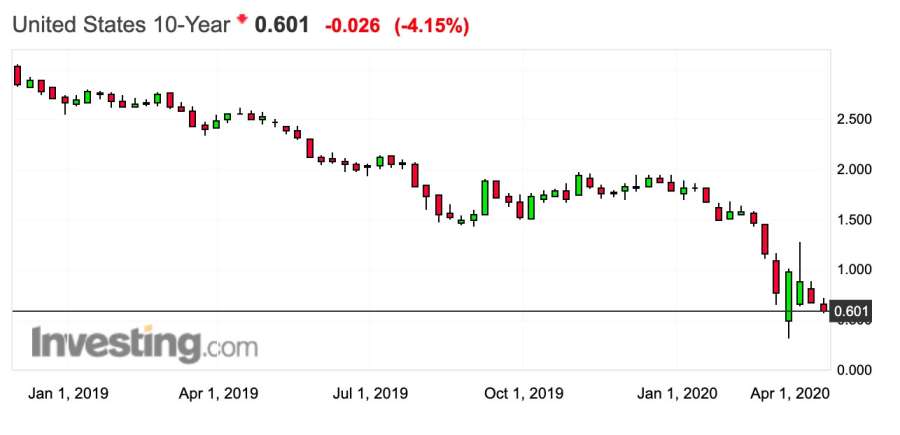A sharp drop in the markets
The collapse of the world’s stock markets following the coronavirus pandemic has been a violent one and it isn’t over. We have even entered a bear market in most stock exchanges (more than a 20% drop since the last high).
The spread of Covid-19 is far from over, although containment measures have been widely adopted in almost 60 countries. Therefore, markets will not regain their momentum anytime soon, although we will probably witness great volatility, downwards as well as upwards.
This means it may be the right time to enter the markets or at least consider doing so… But where and how to invest under these uncertain conditions? Shouldn’t one wait until this health crisis subsides and the economy picks up again? We are not immune to an even sharper drop in the markets, even if they seem to have picked up at the end of March 2020.
HOWEVER… after such a collapse in prices, it is normal to see the market bounce back here and there.
How to go about it?
It is certainly not about trying to find or wait for the market’s lowest point. Nobody can do it and it can only be identified in hindsight.
Despite such uncertainties, it would be silly not to take advantage of this market situation or, as some would say, to take advantage of the “sales”. But which strategy should you adopt? What should you buy and when?
There are two competing theories: those who will try to select specific shares or sectors, and those who will adopt a global strategy. I have chosen the second option.
To put it simply, this is the debate between active and passive management.
The current situation and the months to come will make it hard for certain sectors and companies to pull through as they are more likely than others to get battered on the markets. In contrast, others will be less impacted. The challenge for active management and those who wish to position themselves on specific shares is precisely to find the companies or markets that will perform best in the coming months. This is no easy feat. Of course, we know the transport and tourism sectors are and will be strongly impacted. But what about the others? How can we identify good performers?
I have personally opted for a global and long-term strategy that is similar to passive management. In other words, it is a question of buying the equity market as a whole (with S&P 500 or World ETFs) automatically and periodically, every week or month for example. With this simple method, I do not care when the market actually picks up and I benefit from declines. This method is also much more prudent. By trying to select individual titles, one can gain more but also make significant losses.
Which markets should I invest in?
Until now, we have been talking about the equity market. But there are also bonds (state and companies), commodities like gold, currencies, cryptocurrencies... or real estate.
For example, should we bet on gold? It is a classic refuge in times of crisis or uncertainty. While it is definitely interesting, it should not represent or weigh too much in your asset allocation.
We can also take a closer look at bonds and interest rates that have taken another hit recently. The 10-year US rate fell from 1.50% to 0.60% in just a few weeks, a 60% drop!
As often, the watchword is diversification. You should know that the equity market is the most profitable in the long term.
In addition, once the epidemic is over, world economies may have a hard time bouncing back but they will recover, helped by massive cash flows from central banks.
In other words, even if there is a short-term tactical positioning that can be implemented, we must already think about the long term.
What about after the Covid-19 war?
There are also two opposing thoughts regarding the long term: those who predict that everything or almost will resume as normal, this is my position, and those who think that following this health/economic crisis, many things will change and "nothing will be as it was".
In my opinion, the first hypothesis is more likely: history has shown us that no matter what, the liberal economy and the financial markets have the upper hand and move forward "as usual". It may be cynical, but it is true.
The shift to a green and socially responsible economy did not wait for the coronavirus to start. And in this global awareness, if there is one, the market economy will continue and remain intact.
What do you think? Will Covid-19, the state of emergency, containment... change anything? Will the financial markets be challenged? Will the current global system be turned upside down because of a virus?







